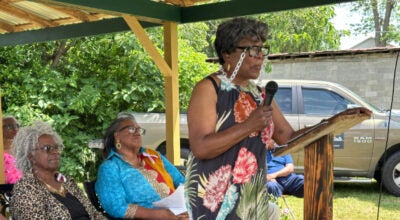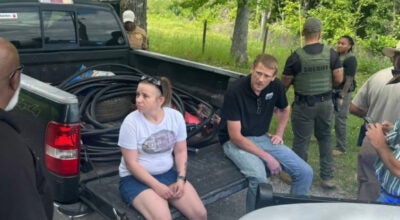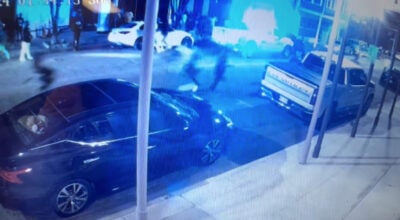Doctors, health care providers meet with public
Published 12:14 am Sunday, April 22, 2012
NATCHEZ — When the Miss-Lou Regional Health Care Committee polled the public to find out what’s lacking in the area as far as health care, the main answer they got was a good problem to have.
“People just didn’t know what was in the area for health care,” committee chairwoman Sarah Smith said.
Saturday’s health fair, which was organized by the health care committee, was an example of what the committee is doing to fix the health care communication breakdown in the Miss-Lou.
Smith said when talks first began about forming a committee, one woman from Ferriday told the committee she had been receiving cancer treatment in Alexandria because she didn’t know a radiologist worked in the Miss-Lou.
If the Ferriday resident had known Dr. Roderick Givens of Caring River Cancer Center was in town, Smith said, it might have saved her the longer trip.
Givens, along with seven other doctors, a nurse practitioner, a dietician and two other hospital officials, schooled attendees on health issues, technology and health care costs at the Miss-Lou Regional Health and Wellness Fair at the Vidalia Conference and Convention Center Saturday.
Smith said oftentimes, the people who attend health fairs go to score some of the free giveaways. But at Saturday’s event, Smith said vendors told her they were impressed with attendees’ high interest in asking serious questions and seeking to be educated.
In one of the sessions, Dr. Hendrik Kuiper spoke to a crowd of mostly women and some fellow doctors in a 30-minute session about the Dilon diagnostics scanner, a new type of technology used to scan breasts for cancer at Natchez Regional Medical Center.
Kuiper said the scan doesn’t take the place of a mammogram, but it can give a clearer picture of the breast when a mammogram comes out questionable or suspicious.
The Dilon scan can save the cost, panic and risk of biopsy operations to help determine the problem more effectively, Kuiper said.
The scan can be especially useful on breasts in which mammograms tend not to come out clear, such as those with implants, scar tissue or on young women or those who are taking hormones.
Instead of just telling women about the scanner when it comes time for them to need it, Kuiper was able to show them firsthand how it works.
He displayed photos of questionable mammograms, in which it was unclear if the breast was normal or abnormal. Then he showed a Dilon scan, and the room of audience members could clearly distinguish.
“Everybody in this room can see what’s gone wrong — that’s abnormal,” Kuiper said.
Following Kuiper’s presentation, Dr. Frank Guedon, an OBGYN, spoke about the use of robotic surgeries at Natchez Community Hospital.
Smith said the health fair gave interested residents a chance to see what services are out there straight from the sources — the doctors and vendors. And the group has its sight set on new ways to improve communication with the community about area health services.
The committee’s next venture will be to create an online and print health care directory for the Miss-Lou, which will provide a direct link to all services at all four area hospitals.
Smith said attendance was low, perhaps due to the unexpected chilly weather, but it went well.
“I think (the health fair) was a good first step, and I hope to see it continue,” Smith said.





